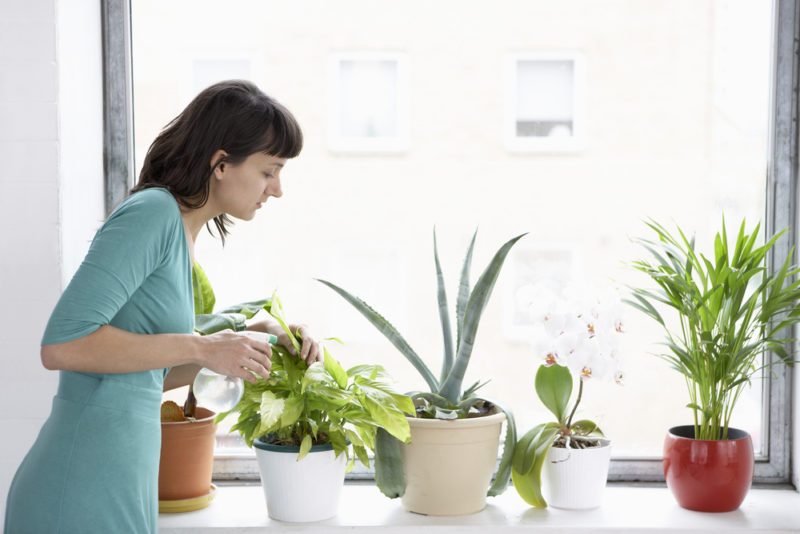It’s difficult to believe, but the average adult spends about 90 percent of their time indoors. With such a huge portion of your time dedicated to your Orlando, Florida, home or office, indoor air quality becomes an important concern. To exacerbate these concerns, the EPA ranks indoor air pollution among its top five environmental dangers and estimates that indoor air is two to five times more polluted than outdoor air. However, you don’t have to worry if you stay vigilant. If you’re searching for ways to improve indoor air quality and stop indoor air pollution, here are a few handy tips.
Buy Some Houseplants
If you’re searching for the greenest way possible to improve indoor air quality and kick air pollution, look to the plant kingdom. Several household plants are exceptional at removing harmful chemicals from the air including formaldehyde, benzene, and xylene, which are components of household items like furniture. Peace lilies, Boston ferns, rubber plants, and palm trees are some of the best at removing these from the air, while also providing an inviting look to your home. Some require more upkeep than others, so just make sure you’re up to the task before deciding which to buy.
Clean the Air Ducts
Another way that pollutants enter the home is through air ducts. If left uncleaned, these areas harbor mold, bacteria, viruses, and even rodents or small animals. Once present in the duct system, turning on the heat or air conditioner blows these contaminants into your home. Because of the health risks, it’s important to get a duct cleaning every year or two years. Not only does it give you better air quality, but it also allows your HVAC system to run at a higher efficiency.
Try an Air Quality Add-On
If you don’t have the time to care for houseplants or otherwise clean the air in your home, adding an air quality product to your HVAC system is effective, yet a passive way to alleviate the problem. Several of our air cleaners have cutting-edge technology and filtration systems that trap up to 99.98 percent of airborne contaminants and bacteria. If you have problems with allergies, you should also consider a whole-home humidifier or portable unit. Both of these types of humidifiers come in different sizes to accommodate your needs. Once installed or filled with water, they pump humidity into your home, providing instant relief for allergy sufferers.
Improve Ventilation Naturally
All homes provide some type of ventilation, as outside air seeps into the home via the attic, doors, windows, floors, and ceilings. However, this just isn’t enough ventilation to keep good air quality. However, opening doors and windows promote better natural ventilation. This allows outdoor air into the home while letting some of the lower-quality indoor air, outside. The result is cleaner, more breathable air.
Stop Smoking Inside
If you smoke or have a family member or roommate who does, try to kick the habit or take it outdoors. Cigarette smoke contains over 4,000 chemicals, and it’s also cited as the worst cause of poor indoor air quality. Not only does it cause firsthand problems like lung cancer, stroke, and respiratory problems, but anyone in the house can suffer or develop asthma or breathing problems. Luckily, there are many support groups, products, and other ways to help you on your way to quitting.
Test for Harmful Gases
Carbon monoxide has become a huge concern in households across the country. This odorless gas has been the cause of poisoning and death in homes for years. Because of its danger, you should install a carbon monoxide detector whenever possible.
One other gas that people don’t often think about is radon. This gas is also odorless, and it occurs naturally from the breakdown of uranium in soil. In small quantities, it poses no problem, but if your home is in a heavy radon zone, it could cause potential health problems. To curb your cause for concern, make sure to periodically have your home tested for radon.
Improving your home’s air quality isn’t all that difficult. It just takes some due diligence, discipline, or planning. For all the rest, call the experts at E.C. Waters Air Conditioning and Heat today at (407) 603-9144.
Image provided by Shutterstock





